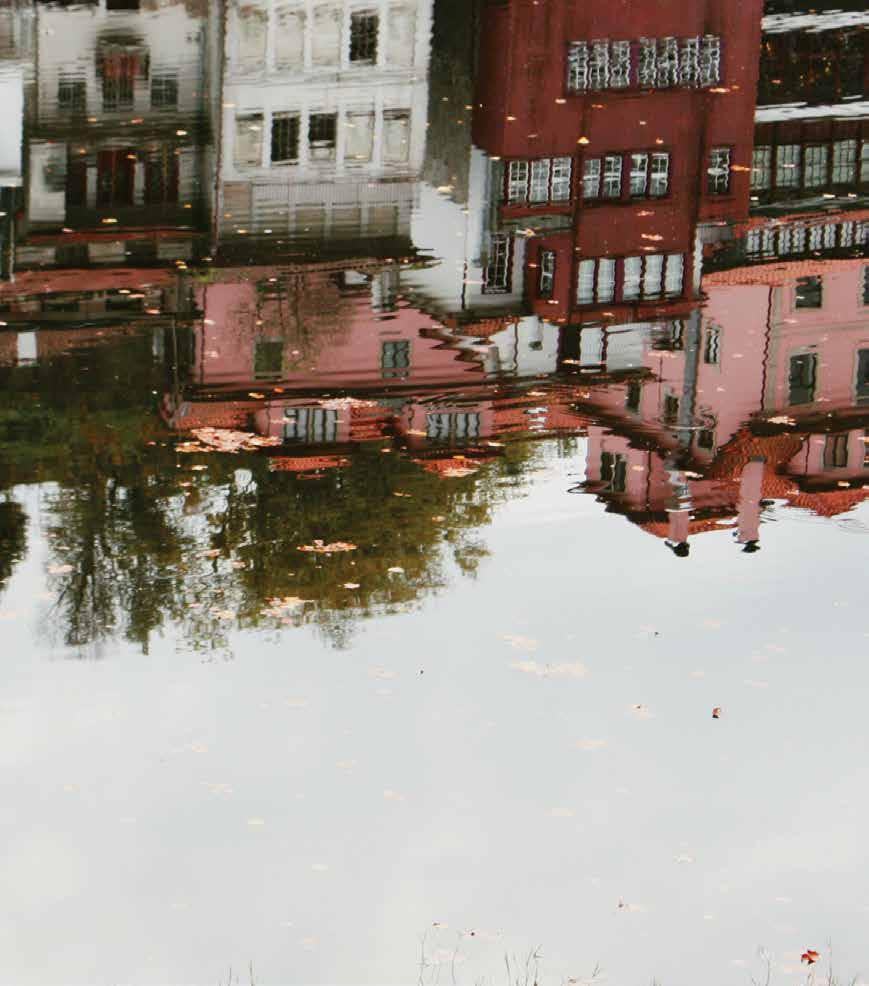
23 minute read
Grande Tema
Lead Story Grande Tema4 Grande Tema Lead Story
Advertisement
Diversifying assets
Texto Text: Carla Celestino
O imobiliário sempre atravessou crises, soube adaptar-se e inovar. É maleável e influenciável por tendências e circunstâncias. Em tempos atípicos, o sector reinventa-se mas há quem tema a perda das suas características tradicionais. Real estate has always gone through crises, learning how to adapt itself and innovate. It is malleable and influenced by trends and circumstances. In these atypical times, the industry is reinventing itself, but there are those who fear the loss of some of its more traditional characteristics.
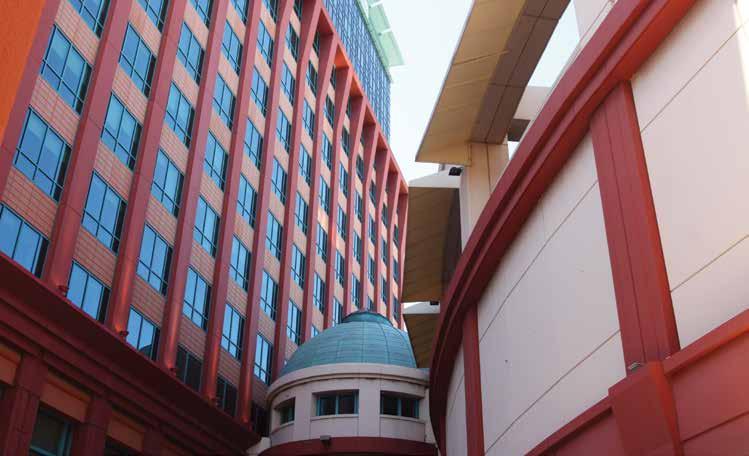
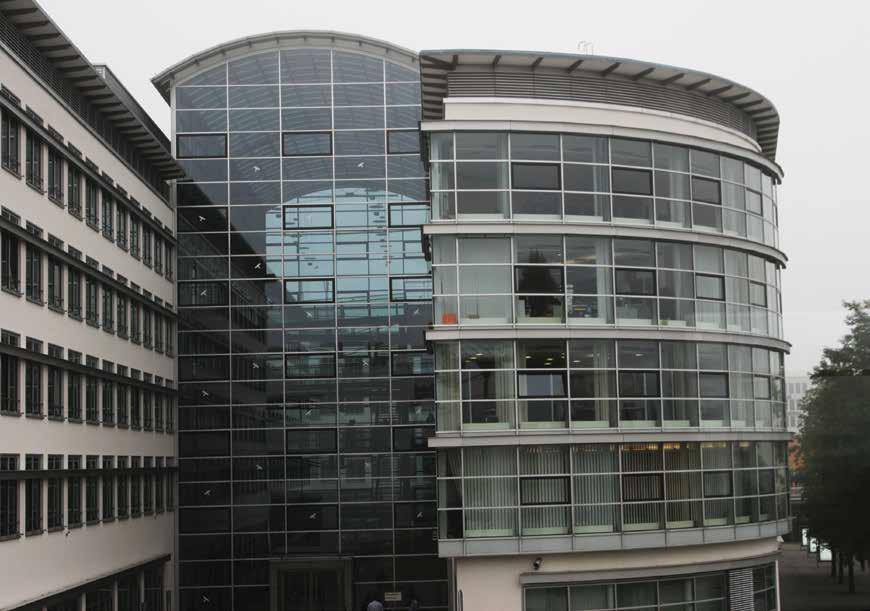
Casas são para as pessoas habitar, escritórios para trabalhar, centros comerciais para comprar bens e produtos e hotéis para pernoitar. Óbvio! Será? E se tudo isto fosse baralhado, como ficaria o imobiliário? Já antes da crise pandémica derivada de Covid-19 sopravam ventos de mudança no mercado nacional de que são exemplo os conceitos de coliving ou coworking. A pandemia de Covid-19 veio acelerar outras realidades susceptíveis de serem materializadas através da tecnologia, tal foi o caso do teletrabalho ou da mostra e venda de imóveis online. Tudo isto são evoluções num cenário que empurrou os países para um plano B. Mas até os conceitos mais tradicionais estão a mudar, de outra forma não sobreviveriam.
Mutante
O jornal The New York Times deu a notícia de que alguns centros comerciais norte-americanos, outrora “mecas do retalho”, perante a crise, não resistiram e tiveram de fechar portas. Mas não foi por muito tempo, pois um novo uso foi-lhes dado. “Não há como negar que uma grande quantidade de espaço de retalho esvaziou-se durante a pandemia do coronavírus”, afirmava John F. Wasik, autor do artigo, que dava conta da descida abrupta de 25.000 lojas que iriam encerrar até ao final de 2020. Do lado oposto, dava também conta de uma outra realidade marcada pela subida em flecha da população acima de 65 anos que aumentava cerca de 10.000 por dia. A combinação destes dois mundos era inevitável e do centro comercial nasceram residências para seniores. Como referia Wasik, embora os shoppings “nunca mais vejam outra loja da Sears, J.C. Penney ou Lord & Taylor”, não vão morrer e vão transformar-se em “algo mais interessante” como sejam os complexos de aposentadoria de elevados padrões. Tal como num centro comercial onde existe praticamente tudo, neste centro habitacional sénior há, além de cama e roupa lavada, compras, serviços de beleza e bem-estar e, claro, “o modelo de comunidades de cuidados continuados, no qual os residentes podem mudar para vida assistida ou cuidados de enfermaNão cremos que (transformar centros comerciais em complexos de aposentadoria) para já faça sentido uma mudança similar em Portugal. We do not believe that (transform shopping centers into comprehensive upscale retirement complexes) it makes sense to make a similar change in Portugal right now.”
Temperatura Temperature
O colapso imobiliário da Big Apple The Big Apple’s Real Estate Collapse
No início de 2020, o mercado imobiliário na cidade de Nova Iorque ainda ganhava força. Os preços de venda estabilizaram-se, mas o mercado de arrendamento encontrava-se forte. Veio, então, a pandemia e virou tudo de cabeça para baixo. No final do ano, o arrendamento médio em Manhattan tinha caído para um nível que já não era observado desde 2010, e centenas de milhares de inquilinos mais vulneráveis enfrentaram a perspectiva de despejo. As vendas, especialmente em Brooklyn e Queens, bem como nos subúrbios, aumentaram vertiginosamente antes de esfriar. Ainda assim, os grandes descontos eram a norma e os novos empreendimentos em toda a cidade enfrentaram sérios obstáculos. Os promotores e brokers viram, no entanto, esperança num mercado que começa a estabilizar-se, antecipando ansiosamente dias melhores em 2021.
At the beginning of 2020, New York City’s real estate market was still gaining steam. Sales had levelled off, but the rental market was strong. Then the pandemic turned everything upside down. By the end of the year, the median rent in Manhattan had fallen to levels not seen since 2010, and hundreds of thousands of the most vulnerable renters were facing the prospect of eviction. Sales picked up, especially in Brooklyn and Queens, and they skyrocketed in the suburbs before cooling off. Still, deep discounts were the norm at the high end, and new developments across the city faced serious obstacles. Developers and brokers, however, saw hope in a market that was stabilising and eagerly awaiting brighter days in 2021. In New York Times gem qualificados conforme as suas necessidades forem mudando”. O facto de terem tudo à mão, desde bibliotecas ou livrarias, academias ou centros recreativos, ajuda também a “reduzir os custos”. Por cá, o presidente da APCC - Associação Portuguesa de Centros Comerciais, António Sampaio de Matos, afirma que “não cremos que para já faça sentido uma mudança similar em Portugal”, sublinhando que “o mercado norte-americano é muito distinto e extremamente flexível em vários aspectos, incluindo a capacidade de alteração profunda do uso em prazos muito curtos” em comparação com o nosso. Ainda assim, como Sampaio de Mattos recorda, em Portugal o sector enfrentou “dificuldades em lidar com alterações aos horários” que foram impostos e que “provocaram prejuízos avultados, potenciaram perdas de emprego no sector e contribuíram para o desacelerar da economia”. Tendo em conta que alguns centros comerciais poderão mesmo, como diz, “acumular prejuízos avultados e ter dificuldades no futuro próximo” nunca se sabe o que se poderá estar no horizonte deste sector no nosso País.
Paliativo
Se o cenário dos centros comerciais se enquadra numa visão mais hipotética, já os escritórios foram os primeiros a dar sinais reais das mudanças que se avizinhavam. A prevenção e a meta de diminuir o risco de contágio levou ao distanciamento social e profissional e ao confinamento, por um lado, mas, por outro, a necessidade do negócio continuar em operação obrigou o escritório físico a ser substituído pelo trabalho em casa, para uns em regime de exclusividade, para outros intercalando entre casa e escritório. Os especialistas dizem que nada será como antes e que a tendência é para que tudo seja mais flexível nos espaços, horários, captação e retenção de talentos… apenas a higiene e segurança serão inflexíveis e sairão reforçadas desta crise pandémica. Neste segmento a crise trouxe também um novo player improvável: a hotelaria. Depois dos hotéis desocupados terem recebido os profissionais de saúde e os estudantes, a sugestão da AHP - Associação da Hotelaria de Portugal ganhou vida com o Decreto-Lei n.º 99/2020, que permite aos empreendimentos turísticos dar, de forma provisória, outros usos às suas unidades de alojamento, quer sejam quartos, suites ou apartamentos, até 31 de Dezembro de 2022. Para a associação, “cada vez menos os hotéis servem apenas para alojamento de turistas, basta pensar nas múltiplas funções e serviços prestados”, defendendo que “não são funções estanques e incompatíveis” e que “há procura por usos mistos, no tempo e no espaço em todo o mundo”. Aliás, já existe oferta e procura por alojamento de longa duração com serviços hoteleiros associados. Mas o aproveitamento dos espaços para outras utilizações prende-se com o “impacto directo na rentabilidade e garantir a sustentabilidade do negócio das empresas hoteleiras” e, na actual conjuntura, “vem abrir a porta a uma solução mais conjuntural: responder à ausência actual de procura turística, permitindo alguma ocupação de unidades de alojamentos com outros usos”, esclarece a associação. Assim que o Decreto-Lei foi publicado multiplicaram-se as unidades hoteleiras a alargar o espectro dos seus serviços mas, como a AHP avança, “a maior oferta vai para as que aliam os momentos de lazer ao trabalho, onde a pessoa pode passar uns dias e, ao mesmo tempo, fazer do hotel o seu escritório”. Exemplo disso é a Amazing Evolution que lançou o “Workation” um serviço que permite trabalhar num ambiente tranquilo, com vista para o mar e ainda usufruir de descontos em diferentes serviços dos hotéis como spa, ginásio ou restaurantes. Também o Grupo Vila Galé lançou um programa que, das 8h00 e às 18h00, permite ter o quarto preparado para trabalhar e com internet wi-fi de alta velocidade, pequeno-almoço e almoço executivo, garagem, acesso ao ginásio e piscina interior e ainda desconto em massagens e tratamentos nos Satsanga Spa & Wellness. Já o Zmar, Eco Resort localizado perto da Zambujeira do Mar, apresentou uma campanha especial para estadas prolongadas e valores atractivos dirigida a profissionais em teletrabalho e nómadas mas onde é possível conjugar o teletrabalho com o contacto com a natureza e à família. E muitos mais grupos e unidades poderiam ser citados, já que esta iniciativa multiplicou-se como cogumelos num esforço quase colectivo de sobrevivência perante um quadro em que, segundo a AHP, “as perspectivas para a Hotelaria são péssimas e foram agravadas com a segunda vaga”. Estas medidas são “paliativas e úteis” mas também são uma “porta aberta para o futuro” que poderá passar por novos conceitos como hotéis-ensino, hotéis-saúde, hotéis-cultura, hotéis-centros de dia…
Resistente
Também muito antes da pandemia já corria em toda a Europa a reivindicação contra a proliferação do alojamento local (AL) de curta duração para turistas, nomeadamente através de plataformas como a do Airbnb. Uns diziam que descaracterizava os bairros históricos, outros que colocavam a fasquia dos preços num patamar insustentável para os moradores locais. O vírus fechou fronteiras e os turistas entraram em vias de extinção obrigando os proprietários a repensar o seu negócio e a equacionar a passagem dos seus imóveis para o mercado habitacional de média e longa duração. Para isso foi preciso mudar a legislação, a mesma que permitiu novos usos à hotelaria. Um estudo desenvolvido pelo DINÂMIA’CET - Centro de Estudos sobre a Mudança Sócio-Económica e o Território e o ISCTE - Instituto Universitário de Lisboa, revelou que, no segundo trimestre de 2020, cerca de 80% dos titulares e gestores de AL registaram uma quebra na facturação na ordem dos 75% comparativamente ao período homólogo de 2019. Mas ainda assim, apenas 17% dos inquiridos afirmou que irá apostar no arrendamento de média e longa duração no mercado privado. A resistência ao arrendamento de longa duração tem, segundo a coordenadora do estudo e professora do ISCTE, Sandra Pereira, “múltiplas razões que se podem sobre pôr: a quebra de rendimentos; a falta de confiança no Estado e na legislação de arrendamento; motivos relacionados com a vida pessoal (possibilidade de usufruto da habitação ou receio de perda de uma ocupação gratificante) ou as especificidades dos imóveis que não se adequam ao arrendamento de longa duração; perda da licença de AL ou mais-valias de desafectação;

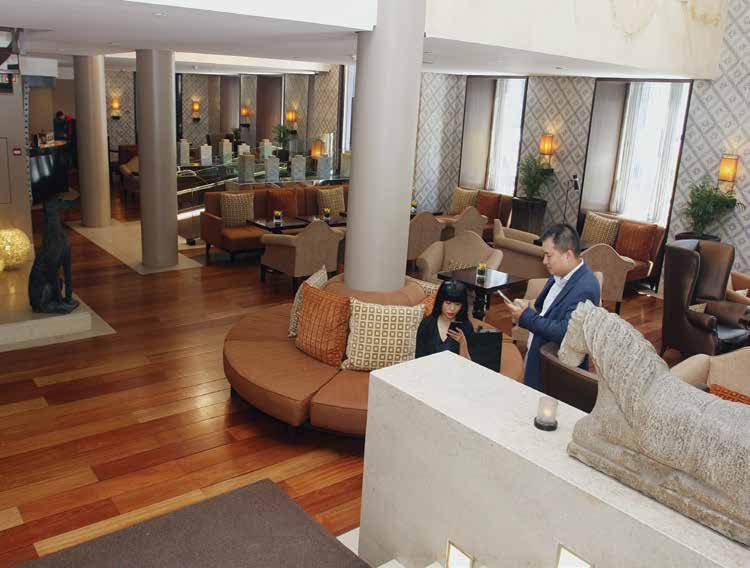
manutenção dos imóveis ou motivações associadas ao compromisso temporal desta solução, que não permite uma eventual mudança de planos”. Recorde-se que em Novembro de 2020, os deputados aprovaram na Assembleia da República as propostas que acabam com a penalização fiscal dos contribuintes do regime simplificado que pretendam retirar os seus imóveis da operação de AL e os afectem ao seu património pessoal (desafectação) para posteriormente transitarem para o mercado de arrendamento ou, ao final de três anos, serem vendidos. Se a esta medida se juntar a vontade da Câmara Municipal de Lisboa em captar imóveis no regime de AL para o mercado do arrendamento de longa duração. Tudo fazia crer que esta mudança iria provocar um boom no mercado. Mas isso não está a acontecer. No dia 4 de Dezembro de 2020, a autarquia anunciava que das 107 candidaturas apresentadas ao programa Renda Segura apenas 40 correspondiam a imóveis provenientes de AL. Se já havia alguma resistência por parte dos proprietários e gestores de AL em deixar o seu negócio, o anúncio da vacinação à Covid-19 e a perspectiva do regresso dos turistas veio gorar as expectativas de uma mudança neste segmento habitacional.

Transformista
Assim que levantámos barreiras contra o coronavírus e nos enclausurámos dentro de casa, rapidamente percebemos que as nossas casas não estavam preparadas para ser algo mais do que um espaço de refeições e dormida e que os espaços de convívio entre amigos e famílias já não precisavam de ser tão amplos. Precisávamos também de áreas para trabalhar e para contemplar. Se, por um lado, interiorizámos que é fácil mudar de casa ou de geografia através de sites de mediadoras, chatbots ou mundos virtuais; por outro, precipitámos mudanças ao nível da arquitectura e do design mais introspectivas, mais amigas do ambiente e com um toque de comunidade. Mas ficámos também na vertigem de uma nova ordem social, onde empresas fecharam
Segurança e credibilidade
Sempre na busca das melhores soluções imobiliárias, somos uma empresa com mais de 35 anos, de reconhecida qualidade e credibilidade, uma referência no mercado imobiliário Nacional. Quer resolver o seu problema imobiliário, fale connosco sem nenhum compromisso. O nosso lema é: segurança e credibilidade
Always in search of the best real estate solutions, we are a company with more than 35 years of recognized quality and credibility, a reference in the national real estate market. Want to solve your problem real estate, talk to us without no compromise. Our motto is: ecurity and credibility Toujours à la recherche du meilleur solutions immobilières, nous sommes une entreprise avec plus de 35 ans de qualité reconnue et crédibilité, une référence sur le marché immobilier national. Envie de résoudre votre problème immobilier, parlez-nous sans pas de compromis. Notre devise est: sécurité et crédibilité

portas e o desemprego conduziu a atrasos no pagamento das rendas e a inquilinos a entregar a chave da casa arrendada, muitos deles com regresso forçado a casa dos seus pais. Uma casa nunca é só uma casa, é um lar, são memórias, é um amontoado de objectos, de almas, de passado e presente. O seu conceito tradicional mudou já há muito com a mutação dos núcleos familiares. A História mostra que as casas mudaram também em função das guerras e dos tempos de paz, das epidemias, do meio-ambiente e das mudanças climáticas, das crises e dos tempos de bonança. Tudo é cíclico, dizem. Podemos questionar se um centro comercial metamorfoseado em residência sénior ou um hotel transformado em espaço de trabalho ou ensino não será “transvestir” o imobiliário. Mas a realidade é que sempre que muda, sempre que evolui, não deixa de ser um bem cobiçado, um bem seguro e um bom investimento. Se há sector que sabe ser transformista e continuar bem cotado é, seguramente, o imobiliário.
Homes are for people to live in, offices are for people to work in, shopping centres for them to purchase goods and products, and hotels are for them to spend the night in. Obviously! Or is this actually so? If all this were shaken up, how would the real estate industry end up looking? Even before the current crisis caused by the COVID-19 pandemic, winds of change were blowing in the Portugal’s domestic market, and the concepts of co-living and co-working are examples of these changes. The COVID-19 pandemic hastened the advent of new technologies such as telework and showing and selling real estate online. These are all developments of a pandemic scenario that has pushed countries to resort to an often haphazard Plan B. But even concepts that are on the more traditional end of the spectrum are changing, as they wouldn’t survive otherwise.
Mutant
The New York Times has reported that some U.S. shopping centres – once “meccas of retail therapy” – have not been able to withstand the crisis and have had to shut their doors. But this didn’t last long, as a new use has been found for them. “There is little denying that a vast amount of retail space has emptied during the coronavirus pandemic,” writes John F. Wasik, author of the NYT article that said that 25,000 stores Cada vez menos os hotéis servem apenas para alojamento de turistas, basta pensar nas múltiplas funções e serviços prestados. Fewer and fewer hotels are operating exclusively to accommodate tourists. We must think about the multiple functions and services they provide.”
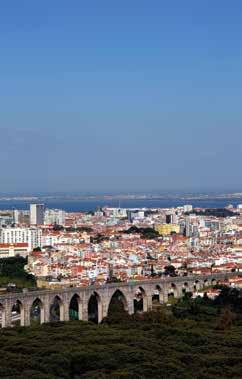
may close by the end of this year. Conversely, he writes, the over-65 population is increasing by about 10,000 a day. These two worlds were inevitably going to collide, and a number of shopping centres have been repurposed as senior housing. Wasik says that, even though “arena-like malls and strip shopping centres might never see another Sears, J.C. Penney or Lord & Taylor store,” they will not die; some are even being transformed into “something more interesting: comprehensive upscale retirement complexes.” Just like a shopping centre that has practically everything, senior housing centres have places to shop, beauty parlours, and wellness services in addition to residents’ regular rooms. Some homes use the “continuing-care communities model, in which residents can move to assisted living or skilled nursing care as their needs change.” Placing senior housing close to libraries, bookstores, gyms,and recreation centres also helps “reduce costs.” On this side of the Atlantic, António Sampaio de Mattos, President of the Portuguese Association of Shopping Centres, says that “we do not believe that it makes sense to make a similar change in Portugal right now,” highlighting the fact that, compared to Portugal, “the U.S. market is very distinct and extremely flexible in many ways, including its ability to change a facility’s use profoundly over very short periods of time.” Nevertheless, as de Mattos explains, this particular industry in Portugal has faced “difficulties in dealing with the schedule changes” imposed. These curfews “have caused substantial damages, led to job losses in the industry, and contributed to the country’s economic slowdown.” Keeping in mind that some shopping centres may indeed, as de Mattos says, “accumulate substantial damages and encounter difficulties in the near future,” one never knows what may be beyond the horizon in Portugal for this industry.
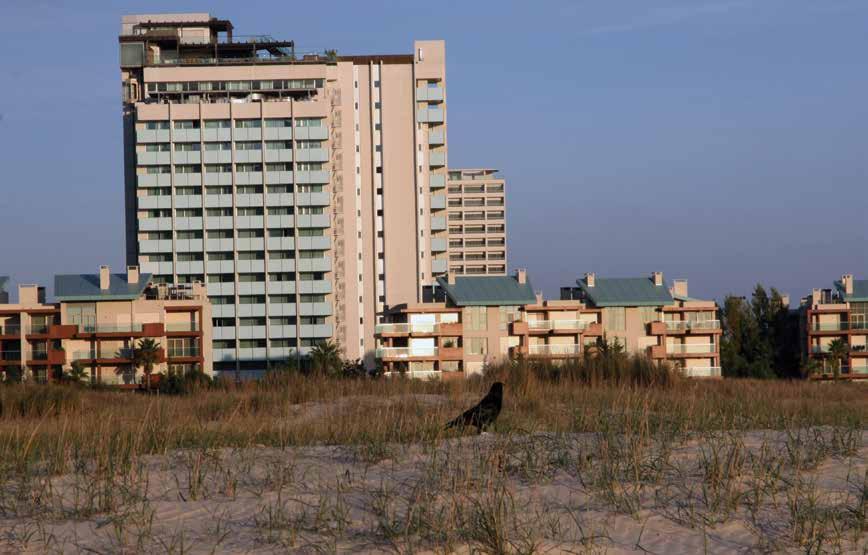
Palliative
While the shopping centre situation may be
more hypothetical, the office segment was the first to give real signs of the changes that were coming. Prevention and the goal of decreasing the risk of contagion brought about social and professional distancing as well as self-isolation, but businesses have needed to continue to operate, forcing the physical office to be substituted with working from home. Some now work exclusively from home, while others alternate between home and office. Experts say nothing will be like it was before and that everything – spaces, schedules, attracting and retaining talent, etc. – will tend to be more flexible. Hygiene, safety, and security will be the only things that cannot be compromised, and they will come out of this pandemic even stronger. The crisis has also seen an unlikely new mover and shaker rise to the occasion: hospitality. After unoccupied hotels opened their doors to health professionals and students, a suggestion made by the Hospitality Association of Portugal (AHP) gained traction and led to Decree-Law #99/2020, which allows tourismbased enterprises to use their properties – be they rooms, suites, or apartments – for other purposes on a provisional basis until 31 December 2022. For AHP, “fewer and fewer hotels are operating exclusively to accommodate tourists. We must think about the multiple functions and services they provide.” AHP argues that “they are not immutable and incompatible functions” and that “there is demand for mixed uses, in time and space all over the world.” In fact, there is already supply and demand for longer-term accommodation that also provides hotel services. Using these spaces for other purposes is related to the “direct impact [these changes have]

Nevão Snow
Os novos desafios dos Vistos Gold New challenges for the Gold Visas
Os Vistos Gold acabaram nas Áreas Metropolitanas de Lisboa e do Porto, bem como nas regiões do litoral. Este processo terá um período transitório e deverá entrar em vigor em Julho de 2021. Para a ministra de Estado e da Presidência, Mariana Vieira da Silva, este diploma visa “favorecer a promoção do investimento de estrangeiros nas regiões de baixa densidade”. A Associação Portuguesa de Promotores e Investidores Imobiliários (APPII) condenou esta resolução e argumenta que é “uma forma muito importante de captação de divisas internacionais ao longo dos últimos anos, e assim uma forma muito directa de financiar a actividade económica em Portugal, apoiando e viabilizando a reabilitação do centro das cidades de Lisboa e Porto.”
Golden Visas ended in the Metropolitan Areas of Lisbon and Porto and in the coastal regions. This process will have a transitional period and should come into force in July 2021. For Minister of State for the Presidency Mariana Vieira da Silva, this bill seeks to “incentivise foreign investment in regions with low population density.” The Portuguese Association of Real Estate Investors and Developers (APPII) condemned the resolution and argued that the visas have been “a very important way to attract international investment over the past few years, thus becoming a direct avenue through which economic activity in Portugal could be financed. They have even enabled Lisbon and Porto to rebuild their city centres.”
Se já havia alguma resistência por parte dos proprietários e gestores de AL em deixar o seu negócio, o anúncio da vacinação à Covid-19 e a perspectiva do regresso dos turistas veio gorar as expectativas de uma mudança neste segmento habitacional. If there was any resistance from owners and managers of AL properties to leave their business model behind, the COVID-19 vaccine announcement and the prospect of tourists returning to Portugal has frustrated expectations that things would change in this housing segment.”
on profitability and [the ability] to ensure the sustainability of the hotel companies’ business.” AHP says, “This will open the door to a more temporary solution: respond to the current absence of tourist demand by allowing some units to be occupied for other uses.” As soon as the Decree-Law was published, the number of hotels expanding the spectrum of services they provide increased dramatically, but, as AHP states, “the largest amount of supply consists of locations that combine leisure and work, where people can spend a few days and also make the hotel their office at the same time.” An example of this is Amazing Evolution and its recently launched its “Workation” service, which allows its clients to work in a quiet environment with a sea view while also giving them discounts on other services the hotel has, such as its spa, gym, and restaurants. The Vila Galé Group has also launched a programme that gives customers a serviced room to work in from 8:00 A.M. until 6:00 P.M. and includes high-speed Wi-Fi, breakfast, lunch, parking, and gym and pool access, as well as discounts on massages and treatments at the Satsanga Spa & Wellness Centre. The ZmarEco Resort located near Zambujeira do Mar has announced a special campaign of their own for longer stays at attractive prices aimed at teleworkers and digital nomads. This particular hotel seeks to combine telework with contact with nature and time with family. And many more groups and individual hotels could be listed here, since this initiative has gained a great deal of popularity. It has been an almost collective effort to survive in the face of a scenario that, according to AHP, “presents dire prospects for the hospitality industry, aggravated by the second wave.” These measures are “palliative and useful,” but they are also an “open door for the future,” and we may see new concepts such as teaching-hotels, health-hotels, culture-hotels, and day centre-hotels spring up…
Resistant
Something else that Europe had strong feelings about long before the pandemic was the proliferation of short-term local lodging (AL) for tourists, namely against platforms such as Airbnb. Some said that AL caused historic neighbourhoods to lose their character while others considered the prices these places would charge to be unsustainably high for local residents. The virus has caused borders to close, and tourists have gone extinct, forcing property owners to rethink their business and to consider shifting their properties to the medium- and long-term housing market. For this to happen, it was necessary to change the legislation, the same that allowed the hospitality industry to ascribe new uses to their properties. A study conducted by the Centre for Studies on Socio-Economic Change and Territory (DINÂMIA’CET) and the Lisbon University Institute (ISCTE)showed that about 80% of AL owners and managers recorded a drop in turnover of75% year-over-year for Q2 2020. But, even so, only 17% of respondents stated that they will turn to medium- and long-term leases in the private market. According to the study’s co-ordinator and ISCTE Professor Sandra Pereira, resistance to lease out properties for longer durations can be attributed to “many reasons that can overlap: the fall in rents (and thereby profitability); lack of confidence in the State and in leasing legislation; reasons related to the owner’s own personal life (some may want to enjoy the home themselves or fear of losing a rewarding occupation) or specific aspects of the property being unsuitable for long-term leases; loss of AL licence or capital gains from disaffiliation; maintenance of the properties; or motives associated with how long commitments made as part of this solution would last, as they may not allow for a possible change of plans.” It ought to be remembered that, in November 2020, deputies in the Assembly of the Repub-

lic approved proposals that put an end to the tax penalties for taxpayers of the simplified regime who intend to remove their properties from the AL operation and allocate them to their personal assets (disaffiliation) so that they can later transition them to the rental market or, after three years, be sold. If the ability to capture properties currently operating under the AL regime and transfer them to the long-term rental market (given Lisbon City Council’s willingness to do so) gets added to this measure, everything suggests that this change would bring about a boom in the market. But this is not happening. On 4 December 2020, the municipal government announced that, of the 107 applications submitted to the Renda Segura programme, only 40 were from AL properties. If there was any resistance from owners and managers of AL properties to leave their business model behind, the COVID-19 vaccine announcement and the prospect of tourists returning to Portugal has frustrated expectations that things would change in this housing segment.
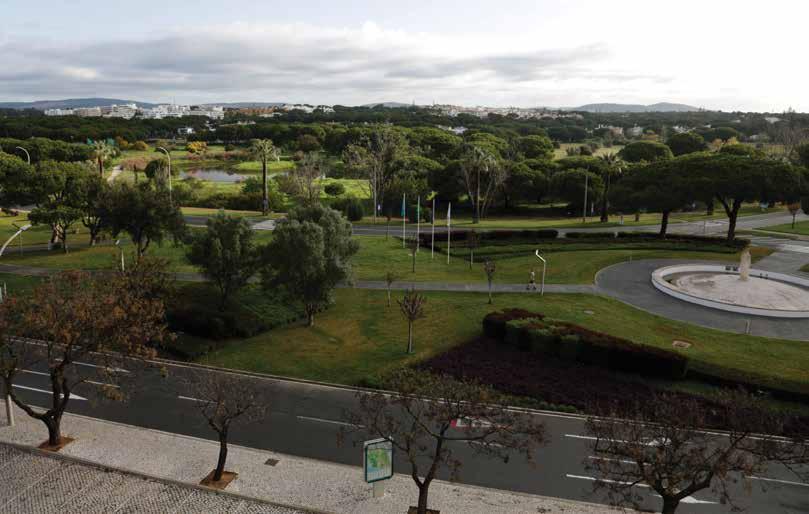
Transforming
As soon as we raised barriers to the coronavirus and cloistered ourselves, we quickly realised that our homes were not prepared to be anything more than a space for meals and sleeping and that spaces for entertaining friends and family no longer needed to be so large. We also needed areas where we could work and contemplate. While we internalised that it’s easy to move from one home or city to another using real estate agencies’ websites, chatbots, and other virtual tools, we also precipitated changes in architecture and design that are more introspective, more environmentally friendly, and slightly more community-focused. But we’ve also been left bewildered with a new social order wherein businesses have closed their doors and unemployment has led to delays in rent payments and to tenants handing over the keys to their homes, many being forced return to live with their parents. A house is never just a house. It’s a home. It’s memories. It’s a heap of objects, souls, a collection of the past and present. The traditional concept of a home changed a long time ago as families became more diverse in their configurations. History shows us that houses have also changed due to wars and times of peace, epidemics, the environment and climate change, crises, and times of plenty. Everything is cyclical, they say. We may wonder whether a shopping centre that has undergone a metamorphosis and come out a home for seniors or a hotel transformed into a workspace or space for teaching is truly “diversifying” real estate. But the reality is that, whenever it changes, whenever it evolves, it remains a secure, desirable asset and a good investment. If there’s any industry that knows how to transform itself and remain highly valued, real estate is certainly it.




